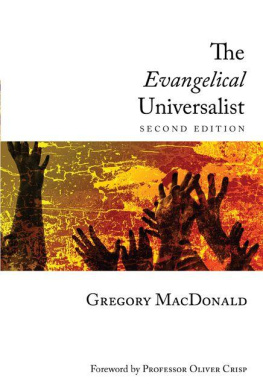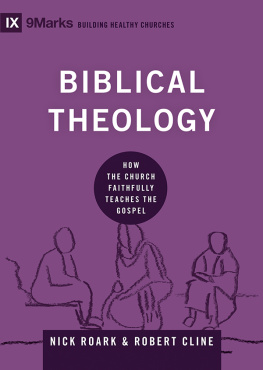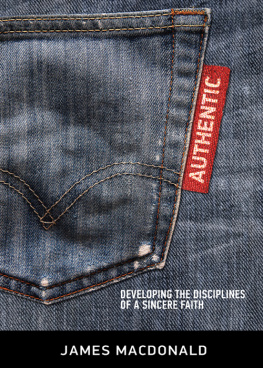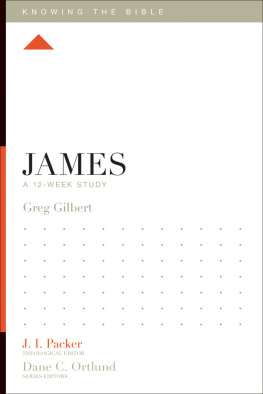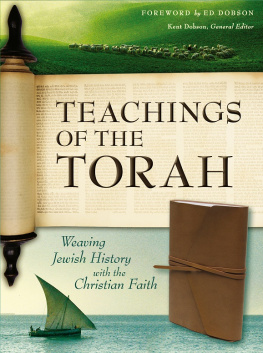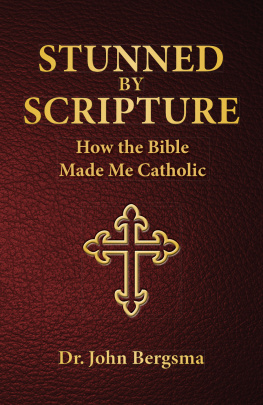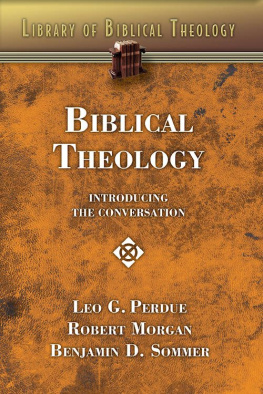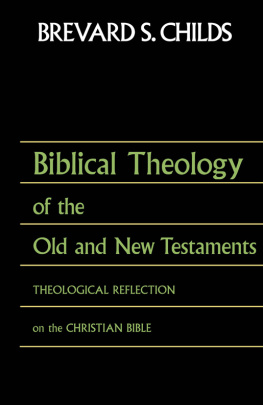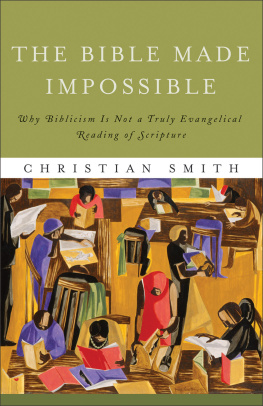Although I am not to be numbered among his converts, I was struck by the persuasiveness of many of Gregory MacDonalds arguments, not least since they rest in an unusually adept interweaving of biblical exegesis with relevant philosophical and theological considerations. As engaging as they are provocative, the claims of this evangelical universalist invite serious consideration and encourage further debate.
Joel B. Green
Professor of New Testament Interpretation, Fuller Theological Seminary, California
Gregory MacDonald has wrestled long and hard with the question that confronts all those for whom Scripture is the supreme authority. Are they obliged to hold that God consigns to eternal punishment those who fail to believe the gospel or can they legitimately trust that the grace of God will eventually embrace all humanity? From MacDonalds spiritual and intellectual struggle has come this passionate and lucid advocacy of an evangelical universalism. It not only engages with key passages in the context of the overall biblical narrative but also treats clearly the profound theological and philosophical issues to which that narrative gives rise. At the same time MacDonald interacts thoroughly and fairly with the major objections to universalism. Whether readers are convinced by all of his arguments or not, they will find this book an excellent, accessible and indispensable aid in their own attempts to grapple with what its author describes as a hell of a problem. Ones only regret is that the ethos in some evangelical circles is such that the author felt compelled to use a pseudonym.
Andrew T. Lincoln
Portland Chair in New Testament Studies, University of Gloucestershire, UK
Gregory MacDonalds defense of universalism is well argued logically, theologically, and especially biblically. He is generous to other viewpoints but suggests that a universalist approach to the difficult texts is more reasonable in the light of the overall structure of the salvation story of the Bible. Evangelicals, among whom MacDonald would count himself, will find him a civil and insightfully critical dialogue partner.
Thomas F. Johnson
former Professor of Biblical Theology, George Fox University, Oregon
With this wonderful book, Gregory MacDonald joins the growing body of Evangelical Christians who now accept a doctrine of universal reconciliation. But I know of no one who has set forth an equally clear, thorough and compelling case for a universalist reading of the Bible as a whole. No Christian who reads this book with an open mind will remain unaffected by its power and clarity of vision, and those who reject universalism as merely heretical, or even as perversely heretical, will likely find that McDonald has addressed their reservations and objections with ease and great sensitivity.
Thomas Talbott
Emeritus Professor of Philosophy, Willamette University, Oregon
The Evangelical Universalist
Second Edition
Gregory MacDonald
Foreword by
Oliver D. Crisp
CASCADE Books - Eugene, Oregon
THE EVANGELICAL UNIVERSALIST
Second Edition
Copyright 2012 Robin A. Parry. All rights reserved. Except for brief quotations in critical publications or reviews, no part of this book may be reproduced in any manner without prior written permission from the publisher. Write: Permissions, Wipf & Stock, 199 W. 8th Ave., Eugene, OR 97401.
Cascade Books
An Imprint of Wipf and Stock Publishers
199 W. 8th Ave., Suite 3
Eugene, OR 97401
www.wipfandstock.com
ISBN 13: 9781-62032239-0
EISBN 13: 978-1-62189-305-9
Cataloging-in-Publication Data
MacDonald, Gregory
The evangelical universalist : second edition / Gregory MacDonald, with a foreword by Oliver D. Crisp.
xxiv + 272 p. ; 23 cm. Includes bibliographical references and index.
ISBN 13: 978-1-62032239-0
1. UniversalismBiblical teaching. 2. SalvationBiblical teaching. 3. HellChristianity. I. Parry, Robin A. II. Crisp, Oliver D. III. Title.
BS680 M35 2012
Manufactured in the U.S.A.
For
Thomas Talbott
Oliver D. Crisp
Alex C. Smith
... suddenly God seemed to answer me. An inward voice said, in tones of infinite love and tenderness, He shall see of the travail of His soul and be satisfied. Satisfied! I cried in my heart. Christ is to be satisfied! He will be able to look at the worlds misery and then at the travail through which He has passed because of it, and will be satisfied with the result! If I were Christ, nothing could satisfy me but that every human being should in the end be saved, and therefore I am sure that nothing less will satisfy Him! With this, a veil seemed to be withdrawn from before the plans of the universe and I saw that it was true, as the Bible says, that as in Adam all die even so in Christ should all be made alive. As was the first, even so was the second. The all in one case could not in fairness mean less than the all in the other. I saw therefore that the remedy must necessarily be equal to the disease, the salvation must be as universal as the fall.
Hannah Whitall Smith
The Unselfishness of God and How I Discovered It: My Spiritual Autobiography (New York: Revell, 1903) chap. 22 (1st ed. only); http://www.godstruthfortoday.org/Library/smith/hwsmith9.html.
Foreword
I DO NOT claim to be an evangelical universalist. But when I first read this book, it changed the way I thought about the scope of the Christian hope in salvation through Christ alone. There are technical books on this subject, and popular treatments of its themes. Since this volume first appeared other voices have joined the conversation, some of which echo much of what this book has to offer. But when it was published, few had dared to say in print that one could be an evangelical and a universalist. After all (so it was thought), that was an oxymoron, like the conjunction of the word military with the word intelligence . Yet this work is replete with reasoning that gives the lie to such preconception. It covers matters philosophical, theological, and biblical. It has a range and a lightness of touch that few contemporary theological works can match. It is, in many respects, that most elusive of things: a book that makes a step-change to the discussion of the topic it treats, while at the same time appealing to a more popular audience. I know many authors who dream of being able to do all that under the covers of one volume.
One does not necessarily read a book to find ones views reinforced. Sometimes we do so. But often (in my experience) the books that are most important to us are the ones that challenge us, or that are written from a perspective other than our own, that make us uncomfortable. For such discomfort is often the occasion of intellectual creativity and development. I read this book wanting to know Is it really possible to be both an evangelical and a universalist? It might be easy to dismiss a book with a title like this one if you have not bothered to read beyond the contents page. The old adage, read it? I havent even reviewed it! is sometimes rather close to the bone when it comes to works that deal with controversial themes like this one. But if you do read it, you will find it is difficult to dismiss it as the output of some malcontent wanting to make trouble. This is a work of real intellectual honesty, written by someone existentially engaged with the questions he asks as a member of the Body of Christ. It is concerned with Christian doctrine. For this reason, it is also a work that seriously and sympathetically engages with the biblical tradition. Even if you end up disagreeing with its author, you will surely come away impressed by the, frankly, evangelical , treatment of Scripture it contains.
Some, perhaps all, of the most important questions in life are contested. Think of the latest ethical problems raised by cutting-edge technology, or wrangling over how society should be governed, about representation of the interests of different groups, or the deepest problems at the frontiers of the contemporary natural sciences. It is because these are important matters that they engender debate and dialogue. This volume makes a significant contribution to a long-standing theological conundrum that has become a pressing concern in our modern world. For some, it is a dangerous book. But the best books are often the dangerous ones. This is both a dangerous and an important work. For these reasons, it should be read and pondered.
Next page
